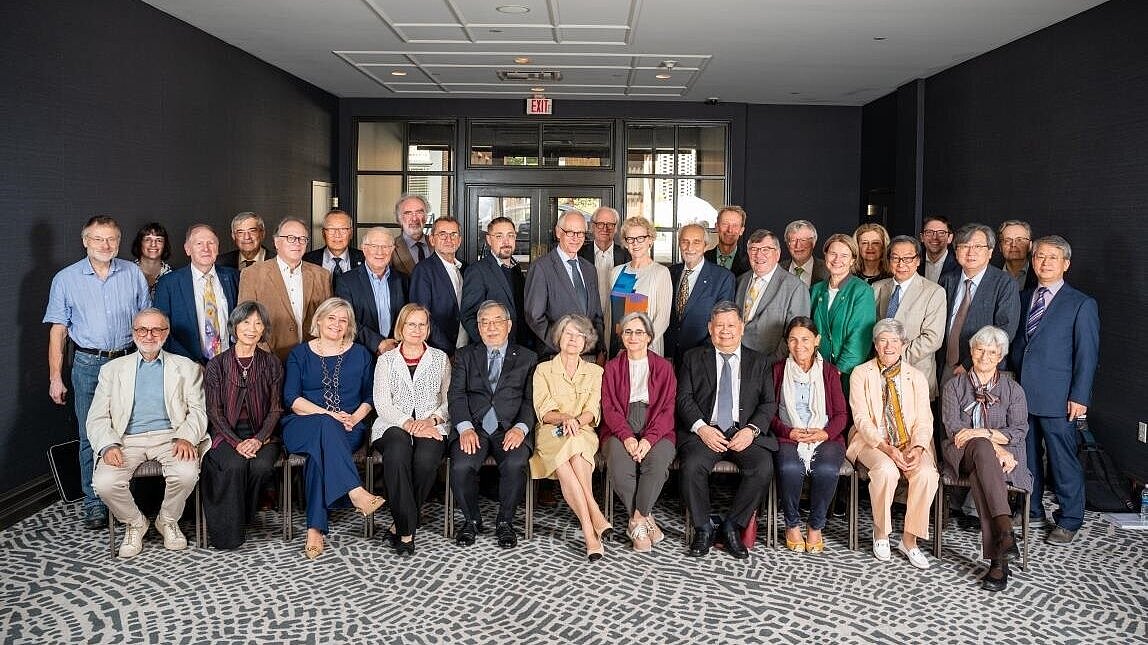The projects in the Academies' Programme are internationally connected and are part of cooperations with over 60 nations worldwide.
The Union of Academies and its member academies build numerous interconnections between their international partners, scientific organisations and academies of sciences and humanities. On the level of scholarship, one also finds a lively, cross-border exchange between researchers from far reaching nations through practices such as the international exchange of publications. Research findings are produced in international teams, and there are exchange and fellowship programmes especially for up-and-coming scholars.
The Union of Academies also represents its member academies in international assemblies of academies and scholarly organisations. The umbrella organisation takes part in the development of solution strategies for the most urgent global problems for the future of humanity, and it develops independent recommendations for the political sphere and social policy.
The Union of Academies is represented on the following boards of academies:
All European Academies
All European Academies (ALLEA) is the European federation of over 50 academies of sciences and humanities. Since its foundation in 1994, ALLEA represents its member academies on the European stage and seeks to promote science as a global public good. Solving challenges in an ever more complex world requires comprehensive, interdisciplinary and international cooperation from beginning to end. ALLEA’s main objective is to actively create optimal conditions for science and research in Europe while remaining independent from political, commercial and ideological interests with the aim of establishing the ideal environment for scientific progress and innovation.
InterAcademy Partnership
Under the umbrella of the InterAcademy Partnership (IAP), more than 140 national, regional and global member academies work together to support the vital role of science in seeking evidence-based solutions to the world’s most challenging problems. In particular, IAP harnesses the expertise of the world's scientific, medical and engineering leaders to advance sound policies, improve public health, promote excellence in science education, and achieve other critical development goals. IAP academy members constitute more than 30,000 leading scientists, scholars in the humanities, engineers and health professionals in over 100 countries. A central focus of IAP's mission is to reach out to society and participate in discussions on critical global issues in which science plays a crucial role, and since its inception in 1993, IAP has been producing statements on issues of fundamental importance to humanity. These statements – which are released only once they have been endorsed by the majority of IAP members – are not only a reflection of the major issues that confront society but are also evidence of IAP's ongoing commitment to society. Hereby IAP is supported by its four regional networks in Africa (NASAC), the Americas (IANAS), Asia (AASSA) and Europe (EASAC). They enable IAP to not only to work on subjects of global, but as well of regional importance.
More information about IAP can be found at www.interacademies.org, on Twitter at @IAPartnership, on LinkedIn and YouTube. The IAP office is located in Trieste, Italy. There is also a liaison office in Washington DC, USA.
Union Académique Internationale
The Union Académique Internationale (UAI) is a global federation of many academies of sciences from over 60 nations and has a social sciences and humanities focus. The UAI is a promoter and supporter of the humanities and social sciences, which play an increasingly important role in an everchanging world. The UAI initiates, evaluates and increases the visibility of long-term international foundational research projects in the humanities and social sciences.
At present, the UAI coordinates 76 projects, nine of which are carried out by member academies of the Union of Academies within the framework of its collective research programme, the Academies Programme. The UAI is financed by membership fees, as well as by private and public funds.
Prof. Dr. Jens-Uwe Hartmann (Member of the BAdW) und Prof. Dr. Klaus Herbers (Non-resident member of the AdW in Göttingen) are the representatives of the Union of Academies in the UAI.
Contact
Nicole Stemmer
International Affairs
06131 / 218 528 13
nicole.stemmer@akademienunion.de



